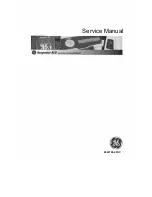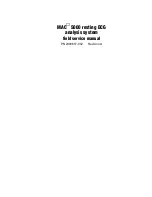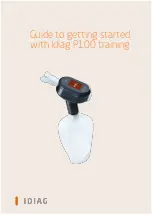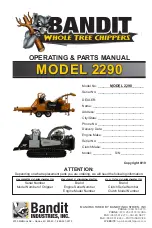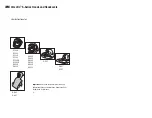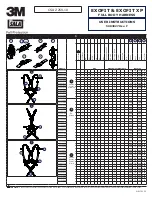
21
7. Selection of abrasive
Media nr. 2
Is often used when the surface is only subsequently sealed.
creates fine profiles, e.g. on vacuum concrete and non-glazed tiles
removes thin layers of rust on steel surfaces
removes thin layers of paint
Media nr. 3
creates a fine to medium texture on concrete.
removes glazing from tiles prior to subsequently coating with antiskid floor sealings
removes old impregnations and coatings about 1 mm thick
Media nr. 4
Standard abrasive, suitable for about 50-60 % of all applications. Creates a medium profile on concrete. Fulfils the
same purpose as Media No. 3 when a higher speed of the machine is required, e.g. on asphalt, in order to keep the
thermal load low.
removes laitance from new concrete
roughening of smooth concrete or natural stone
removes coatings with a thickness of 1-3 mm
cleaning of steel surfaces
Media nr. 5
This media is used to create a coarse profile or to increase the work speed in the case of surfaces hard to treat.
removes sediments on concrete prior to coating
removes thick paint coatings or rust from steel surfaces, bridges, tanks, etc.
removes flexible coatings on parking house decks
removes road markings and retexturing of asphalt and concrete roads
Media nr. 8
Only as an addition to Media No. 3, No. 4 and No. 5 with maximum 30% content.
Media No. 8 should never be used without blending since otherwise the wear in the machine as a whole would
increase disproportionately.
removes polyurethane coatings
removes adhesive remnants
removes rubber deposits
penetrates coatings hard to remove
also suitable to be used on steel for extraordinary roughness























